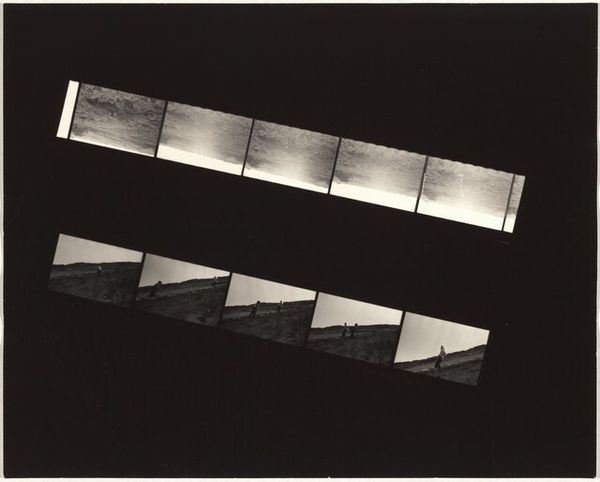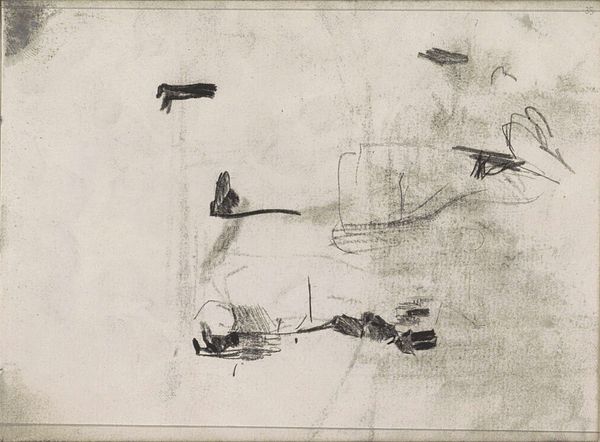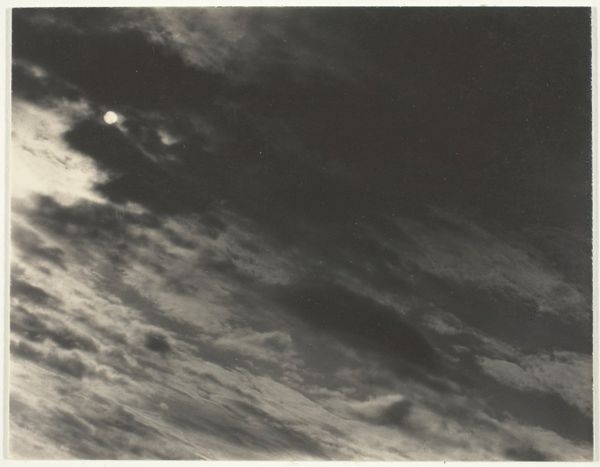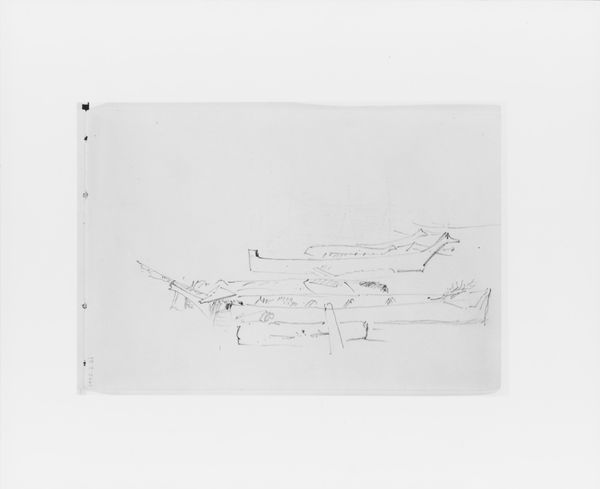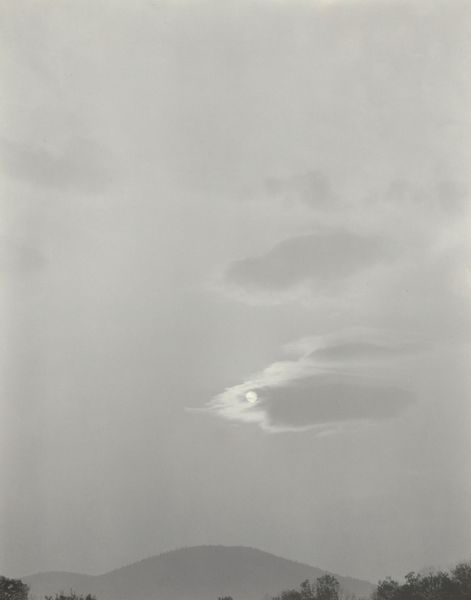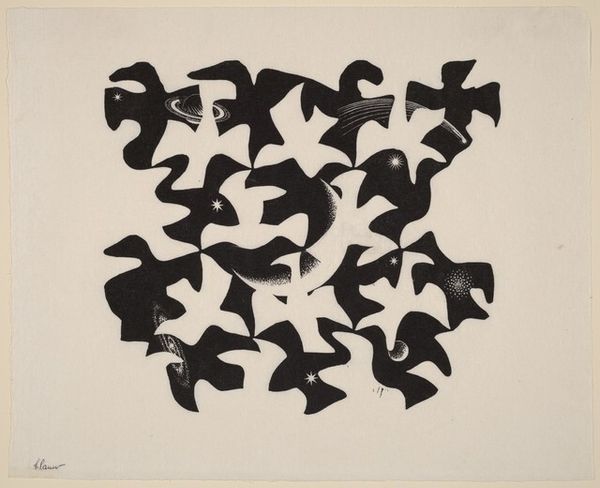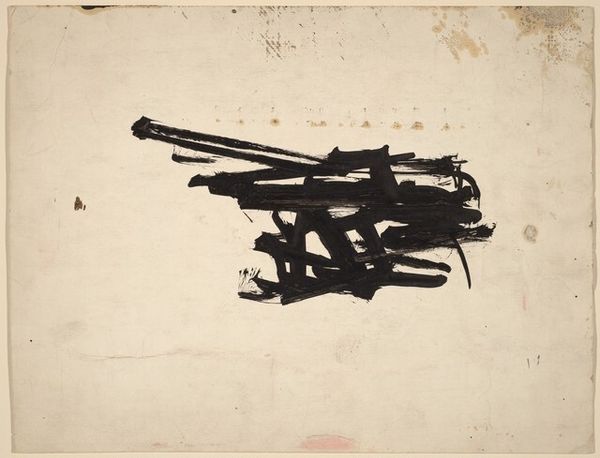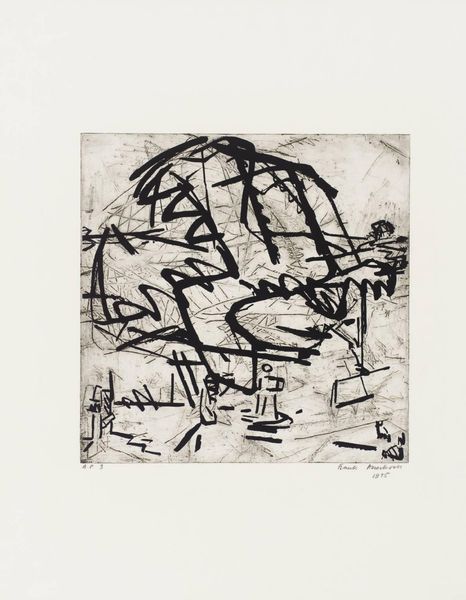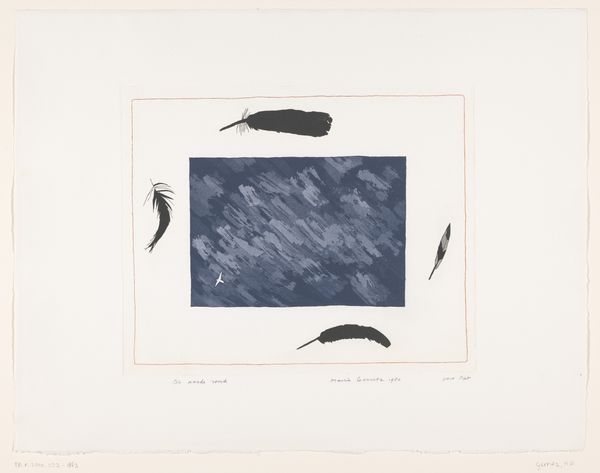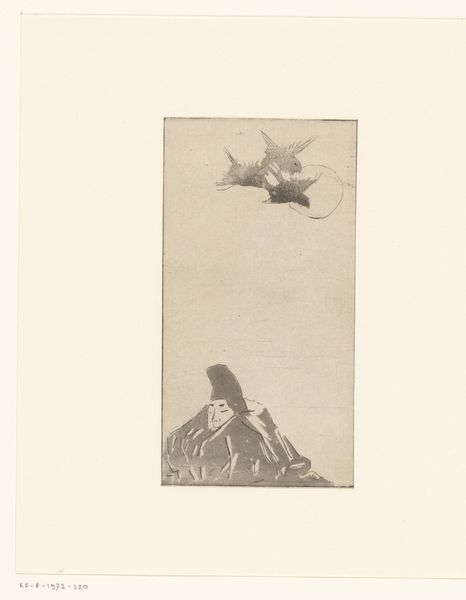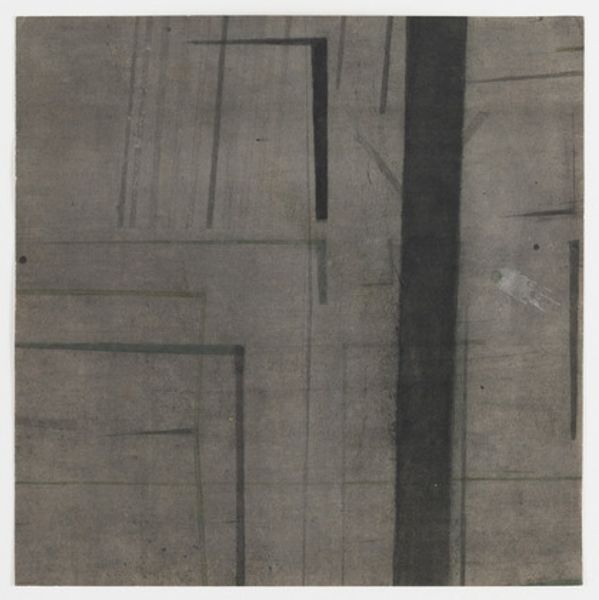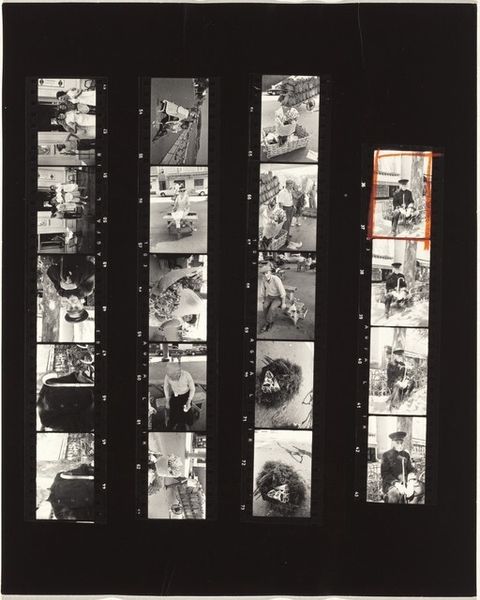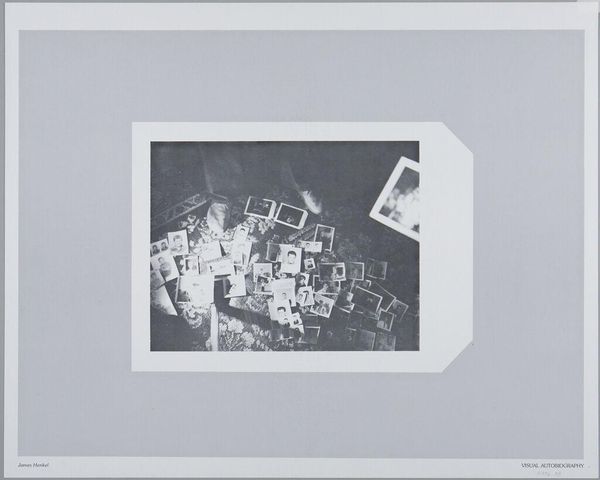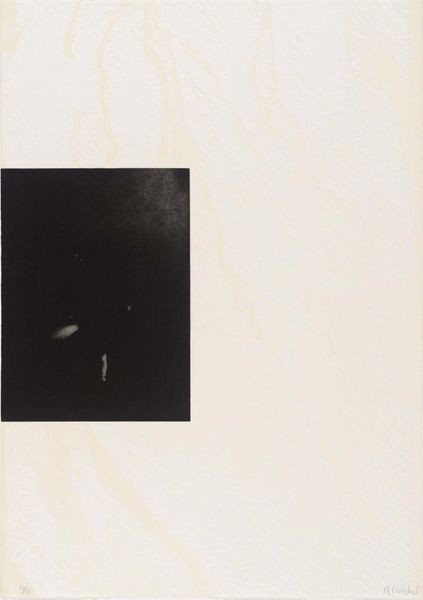
capitalist-realism
Copyright: 2019 Gerhard Richter - All Rights Reserved
Editor: This is Gerhard Richter’s "Stukas," painted in 1964, rendered in acrylic on canvas. Its monochromatic palette creates a sense of grim detachment. What’s your take on this unsettling work, seen in relation to the context in which it was created? Curator: The subject matter – German dive bombers from World War II – is highly charged. Richter, as a German artist painting less than two decades after the war, directly confronts a painful past. The deliberate blurring technique distances the image, mimicking the effect of a photograph taken from a distance, maybe from a newspaper or some media coverage. This choice desensitizes the depiction of these tools of war, inviting the viewer to question how collective memory and historical documentation shape our perception of events like the second world war. What political implications do you observe in it? Editor: It feels like he's not celebrating anything, just acknowledging the historical presence of these planes and their role in a devastating war, yet displaying it as a detached reality. It feels cold. Curator: Precisely. Richter, emerging in the post-war climate, critically engages with the romanticism of war and nationalism. The image itself, sourced from mass media, already bears a layer of interpretation. Richter then further processes it through painting, making us aware of how images are mediated, commodified and consumed in society, reflecting his commentary on visual culture and the manipulative power of imagery within politics. It compels us to question not just what we see but how we see it. Editor: So, it's less about the planes themselves and more about how images of war function in the public consciousness. That really shifts my perspective on its intention. Curator: Exactly! Richter uses the loaded image of the Stukas to open up a dialogue about responsibility, remembrance, and the continuing impact of historical events on the present. Editor: Thanks, that definitely gave me a deeper appreciation of the complex dialogue Richter is having with his audience.
Comments
No comments
Be the first to comment and join the conversation on the ultimate creative platform.
